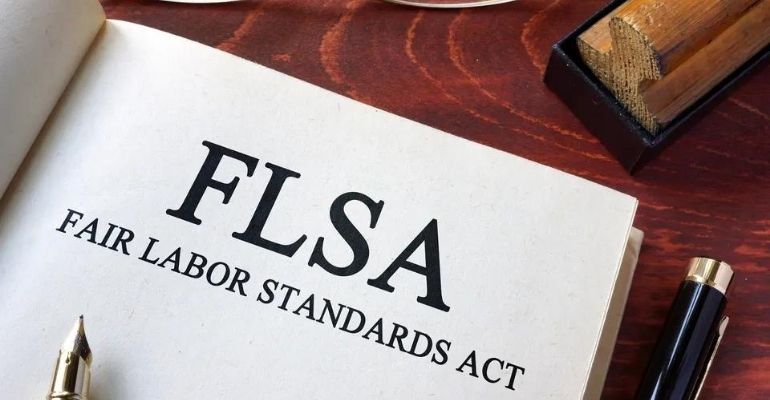
Tis the Season: How to Report Unpaid Overtime and Wages During the Holidays
In an ideal world, employers would always pay their workers fairly and on time. Unfortunately, that is not the world in which we live. There are instances when employers fail to pay their workers the wages they are owed. Although this can occur at any time of year, it is particularly common during the holiday shopping season. Retailers and similar businesses may hire seasonal workers to handle the increase in business that occurs during these months. Additionally, they may ask that regular employees work more overtime than they typically would. It is not uncommon for companies to improperly compensate these employees.
Of course, any business, not just retailers or similar businesses, may unlawfully fail to pay wages an employee is owed at any time. If you feel you are owed unpaid wages, with the help of an unpaid wage attorney, you can collect the money you have earned.
Do not worry if you are unsure of how to go about this process. The following guide will clarify the issue.
Reporting Unpaid Wages and Unpaid Overtime: What You Need to Know
One route you may elect to pursue is a complaint with the Department of Labor’s Wage and Hour Division (WHD). Employers must compensate their workers in compliance with the Fair Labor Standards Act. Often, the WHD conducts investigations of employers when employees report them for failing to pay wages that should have been paid. The WHD may then require the employer to make up the difference between the wages an employee was paid and the wages they were owed, otherwise referred to as “back pay.”
If you believe you have not been appropriately compensated for your work, there are numerous ways you can contact the WHD to file a complaint. First, you can check the online map of Wage and Hour Offices to determine if there is an office in your area. If there is, you may then visit the office in person, or call it.
Additionally, the WHD has a toll-free helpline you may call:
1-866-4USWAGE (1-866-487-9243)
TTY: 1-877-889-5627
Monday-Friday 8 a.m. to 8 p.m. Eastern Time
You can also send the WHD an email if you would prefer.
Important Information to Include When Filing An Unpaid Wages Claim
When filing a complaint with the WHD, you need to include specific information. It is also essential to keep in mind that there is a two-year statute of limitations for filing such complaints. If you suspect you are owed unpaid wages, you need to act sooner rather than later. Some people wait too long to file a claim because they assume that doing so may be costly. They worry they might lose their job, or they may have to pay a fee. That is not the case. Any discussion you have with the WHD will be kept confidential, and filing a complaint does not cost any money. Additionally, it is against the law for your employer to fire you or to otherwise retaliate against you because you filed an unpaid wage or unpaid overtime complaint with the WHD.
When reaching out to the WHD, you should provide:
- your name,
- address,
- the name of the company that did not pay you,
- the company’s location,
- the names of any relevant managers and/or owners involved in the situation,
- the nature of the work for which you were unfairly compensated,
- the manner in which you were paid, and
- when you were paid
Those are the basics. It also helps to gather evidence such as pay stubs to back up your case. You can file a complaint without this evidence, but it may help if you still have them.
What Happens Next?
After you have filed your complaint, the WHD will launch its investigation. This typically begins with a conference in which a WHD representative discusses the issue with a representative from the business in question. The WHD representative will use this opportunity to discuss the investigation process in detail.

Next, the investigators will review pertinent records, privately interview relevant employees, and generally gather evidence to determine if a wage and hour violation has occurred. If the WHD discovers a violation did take place, your employer will be ordered to pay you what you are owed. The WHD may supervise this to a degree to ensure your employer complies with the order.
All that said, it may come as no surprise that the process of recovering unpaid wages can be somewhat difficult. Your employer may try to fight back, arguing your claim is false. Thus, if you believe you have a valid case, it is often a good idea to coordinate with an unpaid wage attorney about your wage or salary. Working with an expert who understands wage and hour violations can boost your odds of securing a successful outcome.
Filing a report with the WHD is one of many routes available to secure payment of your unpaid wages. You also have rights under local ordinances and State law. Many jurisdictions in Florida have special procedures to address wage theft. In addition, you can bring a private action, with the assistance of an experienced attorney, for unpaid wages and FLSA violations. If you and others similarly situated in the workplace have common claims that you are all suffering damages due to your employer’s violations of the FLA, you can bring an action as a group against the employer. You do not have to go through the WHD process first. And lastly, if you and your attorney choose to go through the WHD process, you do not have to go through the WHD process alone.
Get started by contacting Wenzel Fenton Cabassa, P.A. to schedule a free consultation. We will review your case and evaluate the options moving forward. We have offices in Tampa, Orlando, Miami, Sarasota, St. Petersburg, West Palm Beach, and Jacksonville, providing thousands of Floridians with the help they need when they have not been paid the money they are owed.
Please Note: At the time this article was written, the information contained within it was current based on the prevailing law at the time. Laws and precedents are subject to change, so this information may not be up to date. Always speak with a law firm regarding any legal situation to get the most current information available.









